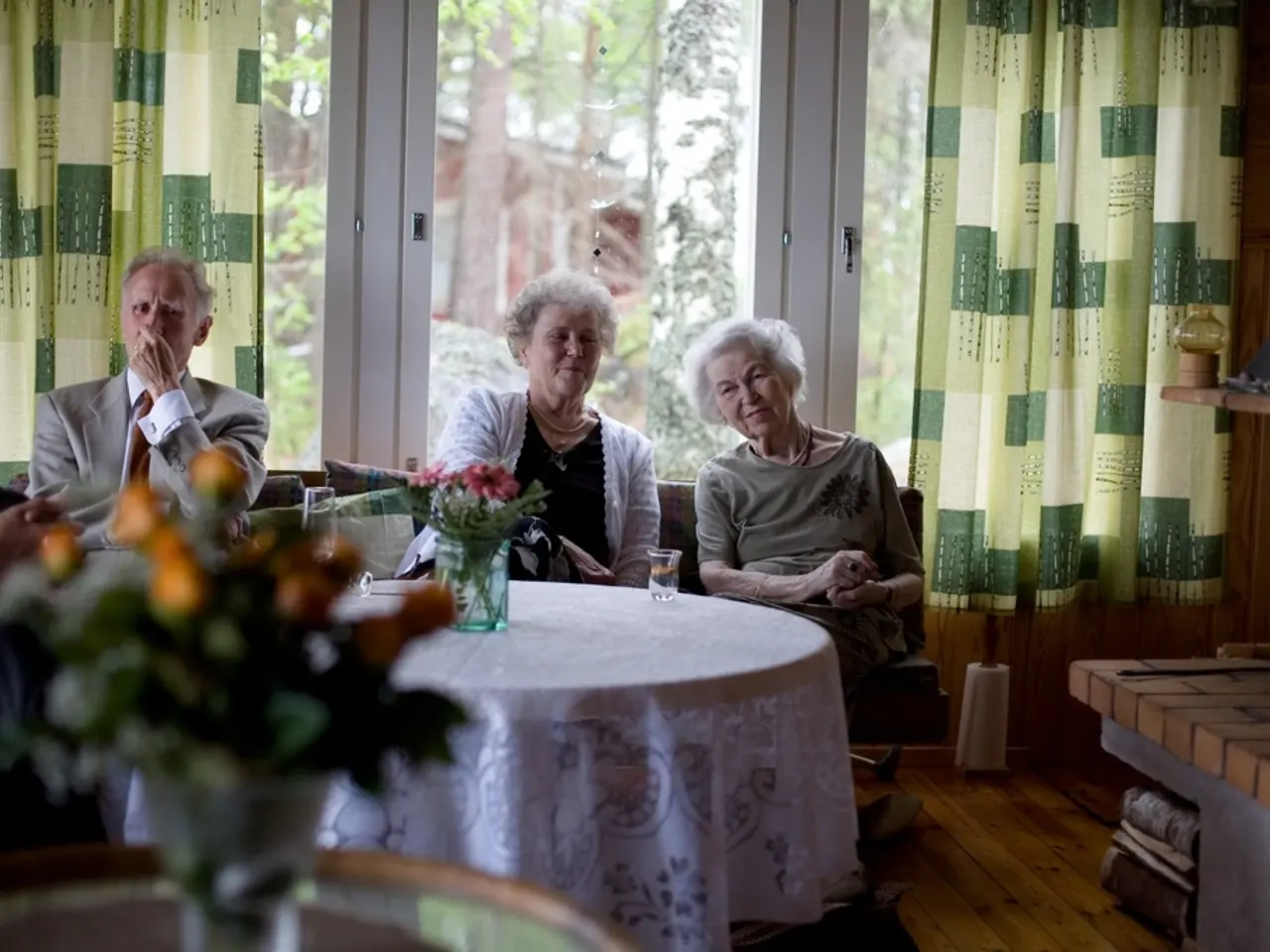Elderly individuals aged 65 and over are increasingly transferring funds to their families due to the government's hike in inheritance tax.
In the UK, an increasing number of older savers are taking advantage of inheritance tax (IHT) rules to reduce the size of their taxable estates and mitigate potential future IHT liabilities. This trend is particularly notable as the upcoming changes that will bring unused pension funds into the taxable estate from April 2027 approach.
According to recent data, 15% of savers made charitable donations, while 5% chose to give to friends. Among active savers aged 65 and over, 17% have begun gifting money due to the IHT changes, with a quarter increasing the amount they give.
The current IHT rules allow individuals to gift money without it being immediately subject to IHT, provided certain conditions are met. Each person has an annual gift allowance of £3,000, which can be rolled over one year if unused. Gifts above this may become subject to IHT if the giver dies within 7 years of making the gift. Gifts made as "potentially exempt transfers" (PETs), such as cash gifts to family members, may be exempt if the giver lives for at least 7 years after the gift is made. The standard IHT exemption threshold is £325,000, which can rise to £500,000 if a main residence is left to direct descendants (children or grandchildren).
With the impending changes that will treat pension funds as taxable estates from 2027, older savers are more motivated to gift money to family members during their lifetime using the available annual exemptions and PETs to gradually reduce their estates and avoid large inheritance taxes later.
It's worth noting that while the US has recently increased its gift tax exclusions substantially, these increases do not apply in the UK, where gifting rules remain governed by the thresholds described above.
Two in five savers who gift money plan to give up to £3,000 this year, with a further 19% intending to give between £3,000 and £10,000. The majority of gifts are given to immediate family, with 71% going to children and 46% to grandchildren.
The impact of these gifting trends can be seen in the rising IHT liabilities. For the 2022/23 tax year, IHT liabilities rose 12% to £6.7 billion, with the total number of deaths resulting in the levy increasing 13%.
The Office for Budget Responsibility forecasts liabilities for the tax year 2024/25 to rise to £8.4 billion, and the current tax year is expected to raise £9.1 billion in inheritance tax. The number of families paying inheritance tax is expected to rise due to frozen thresholds, higher property prices, and the upcoming pension changes.
Ian Dyall, head of estate planning at Evelyn Partners, has expressed concerns about these trends. He warns that wealthy households, who often are wealth and business creators, could get fed up and leave the country. He also mentions that the Treasury cannot sustainably prop up the public finances by taxing the wealthiest 1 or 2% forever without consequence.
In conclusion, the UK's inheritance tax rules encourage older savers to use annual gift exemptions and plan gifts effectively across at least 7 years to minimize IHT on their estates, especially in light of new rules that will treat pension funds as taxable estates from 2027. This trend is influencing many older savers' decisions to gift funds sooner rather than later to family members.
- Older savers in the UK are utilizing property, savings, and finance to make strategic gifting decisions, taking advantage of inheritance tax (IHT) rules to reduce their taxable estates.
- With the upcoming changes in pension regulations, many are increase, rather than decrease, their personal-finance investments and wealth-management strategies for estate planning.
- In the health-and-wellness aspect, a significant number of older savers prioritize mental-health considerations, ensuring that funds are allocated not only for their immediate family but also for their future generations.
- Businesses observing these trends have noticed a shift in the provision of financial services, as clients seek advice on investing in science and technology to grow their savings and reduce potential IHT liabilities.
- The increasing practice of gifting cash and assets is influencing the way the Treasury manages public finances, with concerns being raised about the continuous reliance on wealthy households to sustain the government's finances.
- With the growing need for effective wealth management and tax planning, expect to see more personal-finance experts collaborating with mental-health professionals to provide comprehensive financial and wellness services in the UK.




